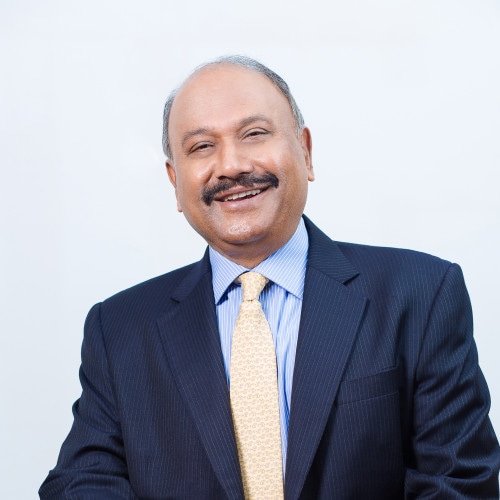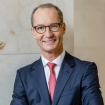
“We want to build an entrepreneurial organisation which creates value for society."
"Family governance is a prerequisite for all family businesses. I believe that with good family governance, one can create any type of business.”
In 1998, when the family that owns GMR Group took stock of where the business had come 20 years after it started in a rural part of India, it could look back with satisfaction on what had been achieved.
The business had grown from a tiny jute-milling operation in Andhra Pradesh state with only US$5,000 in capital to a diversified operation involving growing and trading rice, sugar, timber and cotton; building power plants; and even banking and mutual funds.
GMR grew particularly fast after a wave of economic reforms unleashed by India’s government in the early 1990s, giving the private sector a key role in building infrastructure in one of Asia’s largest economies. Large family-owned companies like GMR started to play a role in building key infrastructure, where the government was unable to step in on its own.
But something was missing, explains GMR founder and chairman G.M. Rao. “We realised that we could not do business with an opportunistic mind-set. Each business was different, and there were no synergies between them. It was very difficult to synchronise all the businesses we had entered into,” he says. “We then thought that we should have a vision, have our own values and create a robust organisational structure.”
In particular, Rao and his family members wondered if the group’s success so far had been based on hard work – or just luck. “We wanted to understand our DNA and ultimately our values,” says Rao.
The family called in consulting professionals to conduct a review to get to the core of what the business was all about. It was a detailed, top-down exercise, which resulted in the identification of seven values, of which the most important was humility. A big part of humility involves proactively seeking feedback from stakeholders, listening, learning and implementing improvements with a focus on excellence.
“Any leader who says ‘I don’t know’ and carries that attitude, will listen, learn and implement,” explains Rao.
It was this attitude of humility that, he says, helped GMR complete a major infrastructure project: the building of a new airport for the city of Hyderabad, in south-central India. It was the first time that an Indian company had built a world-class airport from the ground up, on a greenfield site. “We executed it with humility in our hearts and an ‘I don’t know’ attitude in our minds,” says Rao.
GMR has completed many infrastructure projects since the Hyderabad airport. Many of them reflect a nation-building ethos that has driven GMR since it undertook a rationalisation of its businesses, around the same time as it identified its values.
“We found that the need of the country was infrastructure. The power sector was opening up; we entered into power sector. Roads opened up, and we went into roads. Airports opened up, and we went into airports. In all these projects, we were either the first or second to enter – and we always had pretty much a first-mover advantage,” explains Rao.
In 2006, GMR won a contract to rebuild the old Indira Gandhi International Airport in Delhi. The task was completed in four years –a relatively short time frame for the industry.
The airport went on to win recognition for three consecutive years as the best Asian airport in its category from Airports Council International, a nonprofit organisation representing the world’s airports.
Today, GMR is the largest private airport developer and operator in India; it also operates in the sector in the Philippines. It is one of the largest operators of power plants in the South Asian country, with a growing renewables portfolio. GMR also operates highways and special economic zones. The group is listed on the National Stock Exchange of India and on the Bombay Stock Exchange.
Charitable activities are important, and are principally channeled through a foundation called the GMR Varalakshmi Foundation (GMRVF) Trust, which is supported with 2–3% of group earnings annually. The Trust runs 13 vocational centres, which train 6,000 people every year.
As the group has grown, the family has ensured that it attracts the right people to manage a family business, Rao says. This has meant bringing in people with a global perspective on how family businesses and governance are handled in other parts of the world.
“We spent a lot of time in developing a family governance model. Just to identify the best people to help us with family constitution took us two to three years. Prior to writing a formal family constitution, we took almost two years to align the family,” Rao says.
GMR’s vision is to create what Rao calls an “institution in perpetuity.” “We want to build an entrepreneurial organisation which creates value for society. This vision is very difficult to achieve, especially at this juncture when there is a lot of disruption. We have also realised that unless we have a family governance model, corporate governance won’t happen, and unless corporate governance is in place, we cannot create an institution in perpetuity. Family governance is a prerequisite for all family businesses. I believe that with good family governance, one can create any type of business.”
GMR is helped by a ‘group performance advisor council,’ an independent panel separate from the board that monitors GMR’s performance from the outside. “They discuss our performance with CEOs, CFOs [chief financial officers], business leaders, customers, suppliers and important stakeholders every quarter and provide us with thorough feedback,” Rao says.
When it comes to hiring, Rao believes that values, not just competence and experience, should be a criterion. “What is more important is whether our value systems match or not,” he says. “A person could be an outstanding performer, but we examine if his or her value systems are good.”
Rao believes there is a need, allied to values, for today’s generation – and leaders in particular – to embrace spirituality. Not the religious kind, but a spirituality encompassing physical, emotional and mental harmony. “Spirituality is critical in order to control one’s emotions and still be able to execute at a high level,” says Rao.
Contact us

Dr. Peter Bartels
Partner, Global Entrepreneurial & Private Business Leader, PwC Germany
Tel: +49 40 6378-2170
















